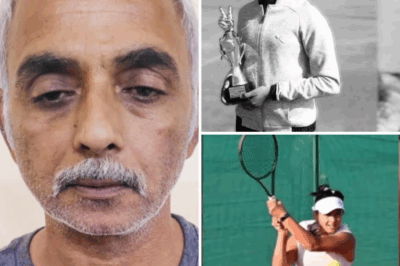Bollywood star Saif Ali Khan, known for his royal Pataudi lineage and modern lifestyle, now finds himself at the center of a storm threatening to take away his family’s ancestral properties in Bhopal, estimated to be worth nearly $1.8 billion (₹15,000 crore). The Indian government, under the Enemy Property Act, has stepped in, claiming ownership over properties tied to Saif’s family legacy, leaving many questioning whether history is repeating itself or justice is finally being served.
The properties at stake include the Flag Staff House, the luxurious Noor-us-Sabah Palace Hotel, and other heritage assets across Bhopal and Ahmedabad. These places aren’t just bricks and walls for Saif; they hold the essence of his childhood, the echoes of laughter in royal halls, and the legacy of the Pataudi name. Yet today, these memories hang by a thread as legal technicalities threaten to wipe them away.

After the partition of India in 1947, many who migrated to Pakistan or China left behind properties that were later declared ‘enemy properties’ by the Indian government under the Enemy Property Act of 1968. The logic was simple: if the original owner became a citizen of an enemy nation, the property they left behind could pose a security risk and should remain under government custody to prevent misuse.
Saif’s predicament stems from this law. His great-grandfather, Nawab Hamidullah Khan, the last ruling Nawab of Bhopal, reportedly supported Pakistan and maintained ties with its leadership post-partition. Though Hamidullah stayed in India, his eldest daughter, Abida Sultan, migrated to Pakistan in 1950, obtaining Pakistani citizenship and leaving her claim to these royal properties in India behind. Later, her son, Shaharyar Khan, became Pakistan’s Foreign Minister, reinforcing the family’s deep ties to Pakistan.
Seeing the opportunity, Hamidullah’s second daughter, Sajida Sultan, Saif’s grandmother, took control of the Bhopal properties. Eventually, these assets passed into the Pataudi family’s hands, enjoyed by Saif’s father, Mansoor Ali Khan Pataudi, and now linked to Saif Ali Khan himself.

The case saw multiple legal twists, with the Pataudi family arguing that despite Abida’s move, they remained Indian citizens and rightful heirs to the properties. However, under a 2017 amendment to the Enemy Property Act, it became clear that if the original owner accepted the citizenship of an enemy nation, even their legal heirs in India could not claim these properties.
In December 2024, the Madhya Pradesh High Court lifted the stay that had temporarily protected the properties from government takeover, giving Saif and his family 30 days to stake a legal claim with evidence. Despite the family’s efforts, they were unable to prove a legitimate claim under the revised law. The High Court also dismissed previous lower court rulings that had briefly restored the properties to the Pataudi family.
With the properties now officially classified as enemy property, the government is moving toward taking full control. The once-private royal havens may soon become government assets, erasing a significant part of Saif Ali Khan’s family heritage.
The public remains divided. Some argue that Saif, who has built a career and name in India, should be allowed to keep his family’s heritage, while others believe that laws exist for a reason, and no individual should be above them, no matter how royal their lineage.
For Saif, the loss of these properties is not just about wealth; it’s about the fading away of a family legacy tied to centuries of history, culture, and personal memories.
As the final decision looms, the case has sparked a heated conversation about what defines ownership, heritage, and justice in a country constantly balancing its past with the need to uphold its laws.
What do you think? Should Saif Ali Khan keep his royal properties, or is it right for the government to claim them under the Enemy Property Act? This battle over palaces and memories is far from over, and it will decide the fate of a legacy that once defined royal India.
News
A Mother Beyond Blood: Mahhi Vij Opens Up About Raising Khushi and Rajveer Like Her Own Ask ChatGPT
Sometimes, it’s not blood that defines family, but love, compassion, and the willingness to open your heart when it’s least…
The Nurse Facing Execution in Yemen: Nimisha Priya’s Fight for Life and Justice
Nimisha Priya’s story is one that shakes the soul—a tale of courage, desperation, and the harsh realities faced by many…
At 90, Dharmendra Finds Solace in Farming Away From Family: A Look Into His Peaceful Farmhouse Life
At 90 years old, Bollywood legend Dharmendra has chosen a life far removed from the hustle and bustle of Mumbai’s…
New Love or Just Lights, Camera, Action? Rumors Swirl as Shefali Bagga and Faisu Spark Dating Buzz
Social media has been buzzing with speculation, curiosity, and a fair bit of confusion after internet star Faisal Shaikh—better known…
Once a Star, Now Forgotten: Beloved TV Actress Found Disoriented on Streets of Bengal
In a heartbreaking twist of fate, a once-famous face from Bengali television and film has resurfaced under circumstances that have…
A Father’s Confession: The Shocking Truth Behind Radhika Yadav’s Murder
When the news broke that 25-year-old tennis prodigy Radhika Yadav had been killed by her own father, the nation reeled…
End of content
No more pages to load












